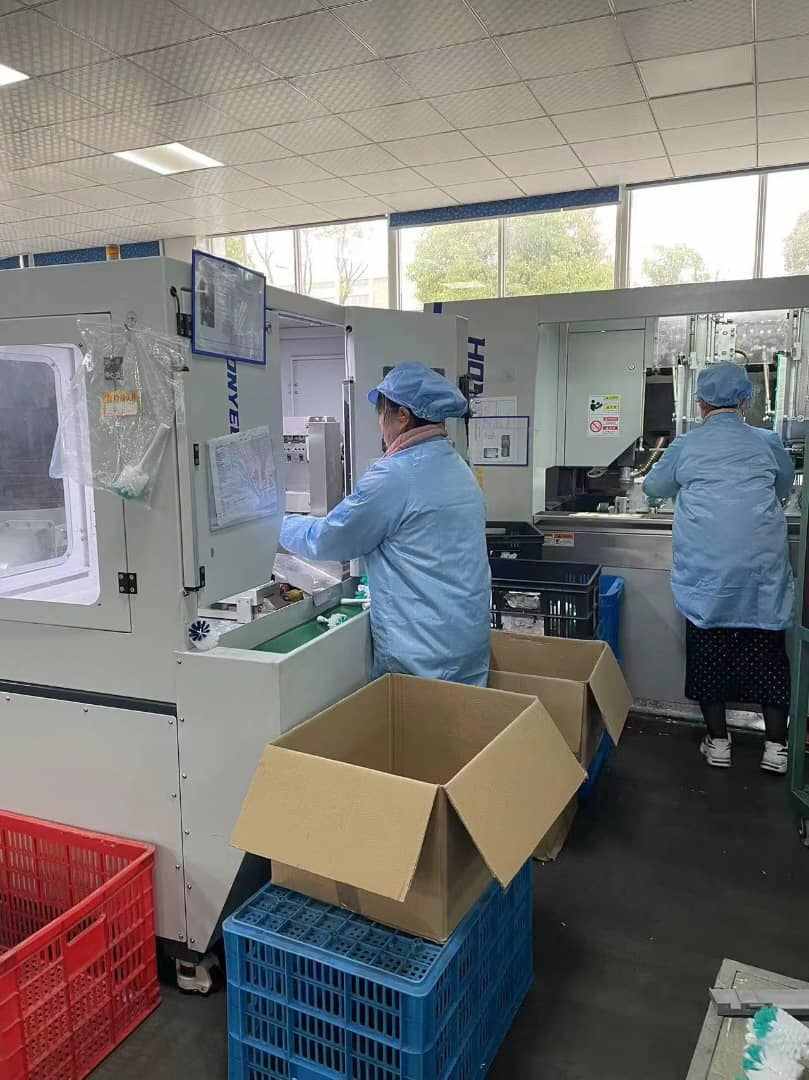General Audit Preparedness for U.S. Importers
Build a compliance file before CBP knocks. We prepare importers for Focused Assessments, valuation reviews, and customs risk management.

Why Audit Preparedness Matters
Importers face growing scrutiny from CBP.
Focused Assessments, CF-28 Requests for Information, and CF-29 Notices of Action are increasing.
Without a compliance file prepared in advance, U.S. importers risk shipment delays, penalties, and even seizures.
Audit preparedness ensures you show reasonable care, protect your supply chain, and avoid costly enforcement actions.
What’s Included in Audit Preparedness
✔️Focused Assessment Preparation – Full readiness for CBP’s most rigorous audit, including internal reviews of valuation, classification, and entry records.
✔️ Valuation & Classification Review – Confirm HTS codes, check CBP rulings, and reconcile declared values against payments.
✔️ Customs Risk Management – Identify red flags in invoices, packing lists, and shipping documents before CBP does.
✔️ Pre-Audit File Creation – Build a compliance binder with contracts, affidavits, COO evidence, and payment reconciliation.
✔️ Supply Chain Mapping – Trace suppliers, factories, and materials to ensure transparency and avoid surprises during audits.
✔️ Training & Advisory – Provide import staff with audit-ready procedures, document control, and response strategy.
How It Protects U.S. Importers
✔️ Demonstrates Reasonable Care – Having a compliance file in place proves to CBP that you exercised due diligence, reducing the risk of penalties.
✔️ Strengthens Audit Defense – Focused Assessment preparation and valuation/classification reviews give your broker or counsel stronger arguments.
✔️ Reduces Risk of Detention & Seizure – Proper documentation of supplier legitimacy, COO, and valuation lowers the chance of shipments being held at port.
✔️ Avoids Costly Penalties – Errors in HTS codes, undervaluation, or missing records often result in fines; proactive audits help prevent them.
✔️ Builds Supply Chain Transparency – Factory verification, supplier affidavits, and raw material origin mapping ensure your supply chain can withstand CBP scrutiny.
Get Audit-Ready Before CBP Knocks
Don’t wait for a CF-28 or CF-29. Prove reasonable care before audits, reduce customs risk, and protect your supply chain with a compliance file built to U.S. standards.
Immediate Support for Importers
Focused Assessment preparation
Customs valuation & classification review
Risk management & audit defense
Explore Related Compliance Services
- Factory Verification Report Services
On-site supplier audits in China & Vietnam with geo-tagged photos, chain-of-custody documentation, and compliance reports that withstand CBP scrutiny.
➡️ Link:/factory-verification-report-supplier-audits-china-vietnam
- Supply Chain & Due Diligence
Map suppliers, verify factories, and prove raw material origins. On-site audits in China and Vietnam deliver the transparency importers need under U.S. law.
➡️ Link: /supply-chain-due-diligence-supplier-verification-china-vietnam
- UFLPA-Specific Compliance
CBP is detaining shipments under the Uyghur Forced Labor Prevention Act. We provide affidavits, proof of no forced labor, and rebuttable presumption evidence you need.
➡️ Link:/UFLPA Compliance Services
- Advanced & Specialized Services
When importers face complex cases, Asia Agent delivers boots-on-the-ground supplier verification, third-party audits, and enforceable legal contracts for compliance.
➡️ Link:/advanced-trade-compliance
CBP audit preparedness means building a compliance file before Customs and Border Protection (CBP) requests documentation. For U.S. importers sourcing from China and Vietnam, being prepared reduces risks of penalties, detentions, and shipment delays. It shows CBP you’ve exercised reasonable care with valuation, classification, and country-of-origin compliance.
Typical documents include:
-
Commercial invoices & packing lists
-
Bills of lading and ISF filings
-
Supplier contracts and purchase orders
-
Bank wire proofs matching invoices
-
Classification memos with HTS codes
-
Factory verification reports (if sourcing from China or Vietnam)
Asia Agent helps U.S. importers assemble these into a compliance file that withstands CBP review.
On-site supplier audits confirm production capacity, validate factory licenses, and collect geo-tagged photo evidence. This protects U.S. importers by proving supplier legitimacy and reducing the risk of CBP questioning invoices or origin claims.
CBP checks if declared values match actual payments (invoice-to-wire reconciliation) and if HTS codes follow binding rulings. Errors often occur with assists, royalties, or molds provided to factories in Asia. A proactive valuation and classification review prevents costly reassessments.
The Uyghur Forced Labor Prevention Act (UFLPA) gives CBP authority to detain goods suspected of forced labor links. For importers sourcing from China, especially Xinjiang-related supply chains, CBP demands proof of no forced labor. Preparedness requires supplier affidavits, raw material traceability, and audit trails to rebut CBP’s presumption.
Yes. While UFLPA is focused on China, CBP also audits Vietnam shipments for valuation, misclassification, and transshipment risks. Importers must prove substantial transformation and provide clear COO (Country of Origin) evidence. Asia Agent performs on-the-ground audits in both China and Vietnam to meet these requirements.
Private label and e-commerce brands importing from China or Vietnam are especially exposed. A CBP audit can halt shipments, freeze cash flow, and add unexpected duties. Building an audit-prepared compliance file protects brands against costly disruption.
Audit readiness projects typically take 2–4 weeks, depending on supplier cooperation. For urgent cases, on-site audits in China and Vietnam can begin within days, and compliance files can be built before CBP deadlines.
Penalties range from monetary fines to seizure of shipments. Repeat violations can result in importer exclusion or revoked trade privileges. Demonstrating reasonable care through prepared documentation can significantly reduce penalties or prevent them entirely.
-
Local presence in China and Vietnam for supplier verification
-
Legal support with contracts, affidavits, and compliance memos
-
Experience handling valuation, classification, and UFLPA documentation
-
Speed with on-site audits and evidence gathering within days